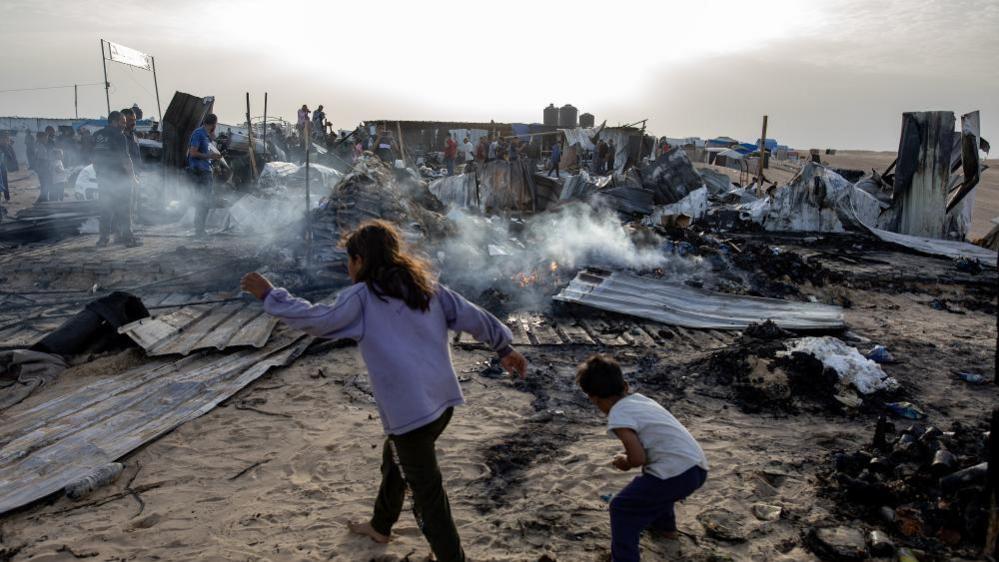What next as Ireland recognises Palestinian state?
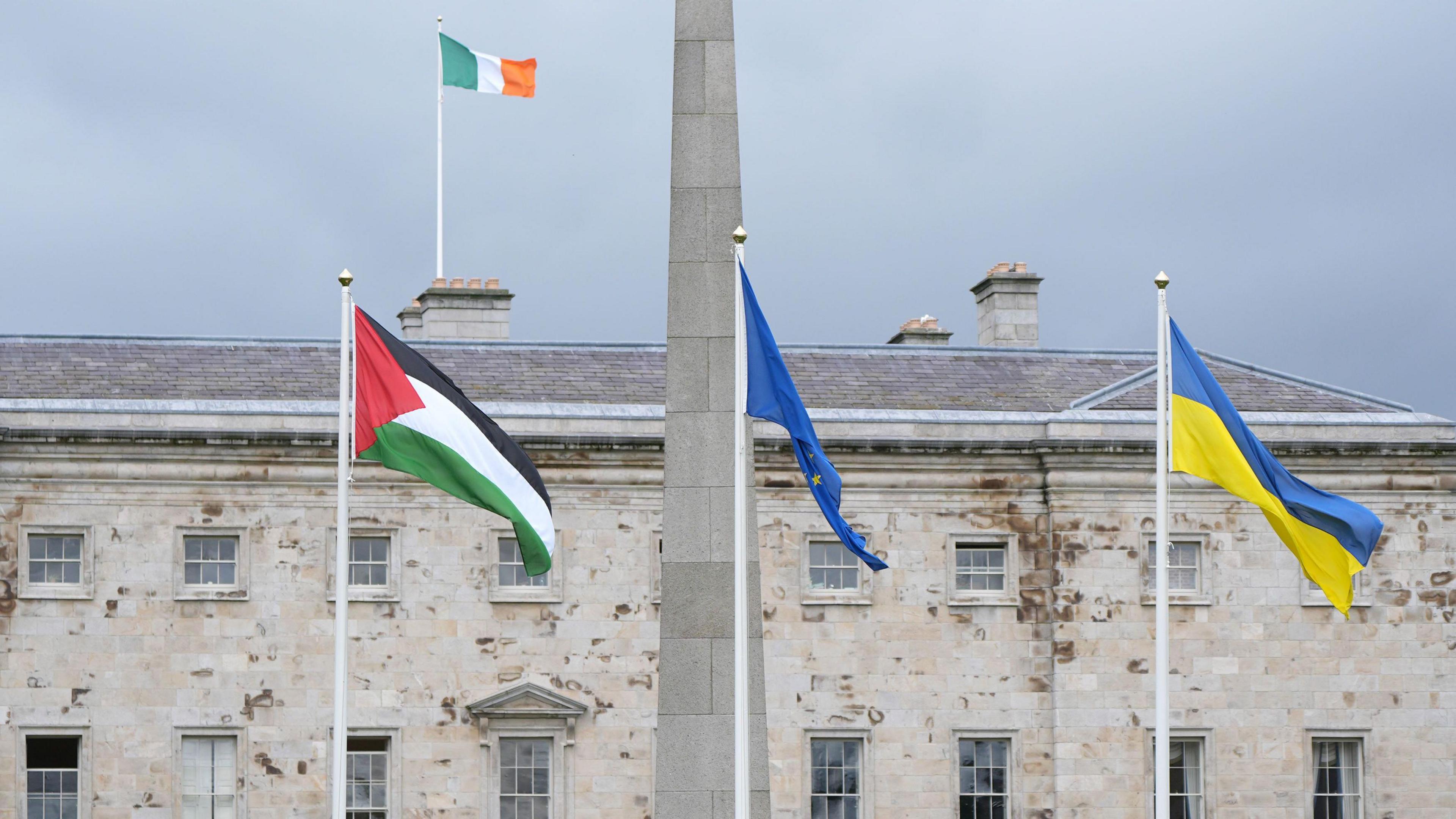
The Palestinian flag has been raised at Leinster House
- Published
The Republic of Ireland has officially recognised a Palestinian state - a move which the taoiseach (Irish prime minister) has described as "important and historic".
Both Hamas and its rival, the Palestinian Authority, have welcomed the recognition. The Palestinian flag has now been raised at Leinster House, the seat of the Irish parliament.
Israel recalled its ambassador to Ireland in response to the country's planned recognition of a Palestinian state and claims the move encourages terrorism and further instability.
Norway and Spain have also announced that they will recognise a Palestinian state.
Irish PM formally recognises a Palestinian state
In a statement on Tuesday, the Irish government said it recognised "Palestine as a sovereign and independent state and agreed to establish full diplomatic relations between Dublin and Ramallah".
It said an ambassador would be appointed "along with a full Embassy of Ireland in Ramallah".
Taoiseach Simon Harris said the decision was about "keeping hope alive".
"It is about believing that a two-state solution is the only way for Israel and Palestine to live side by side in peace and security," he said.
"We had wanted to recognise Palestine at the end of a peace process however we have made this move alongside Spain and Norway to keep the miracle of peace alive.
"I again call on Prime Minister Netanyahu of Israel to listen to the world and stop the humanitarian catastrophe we are seeing in Gaza."
What do Palestinians in Ireland say?
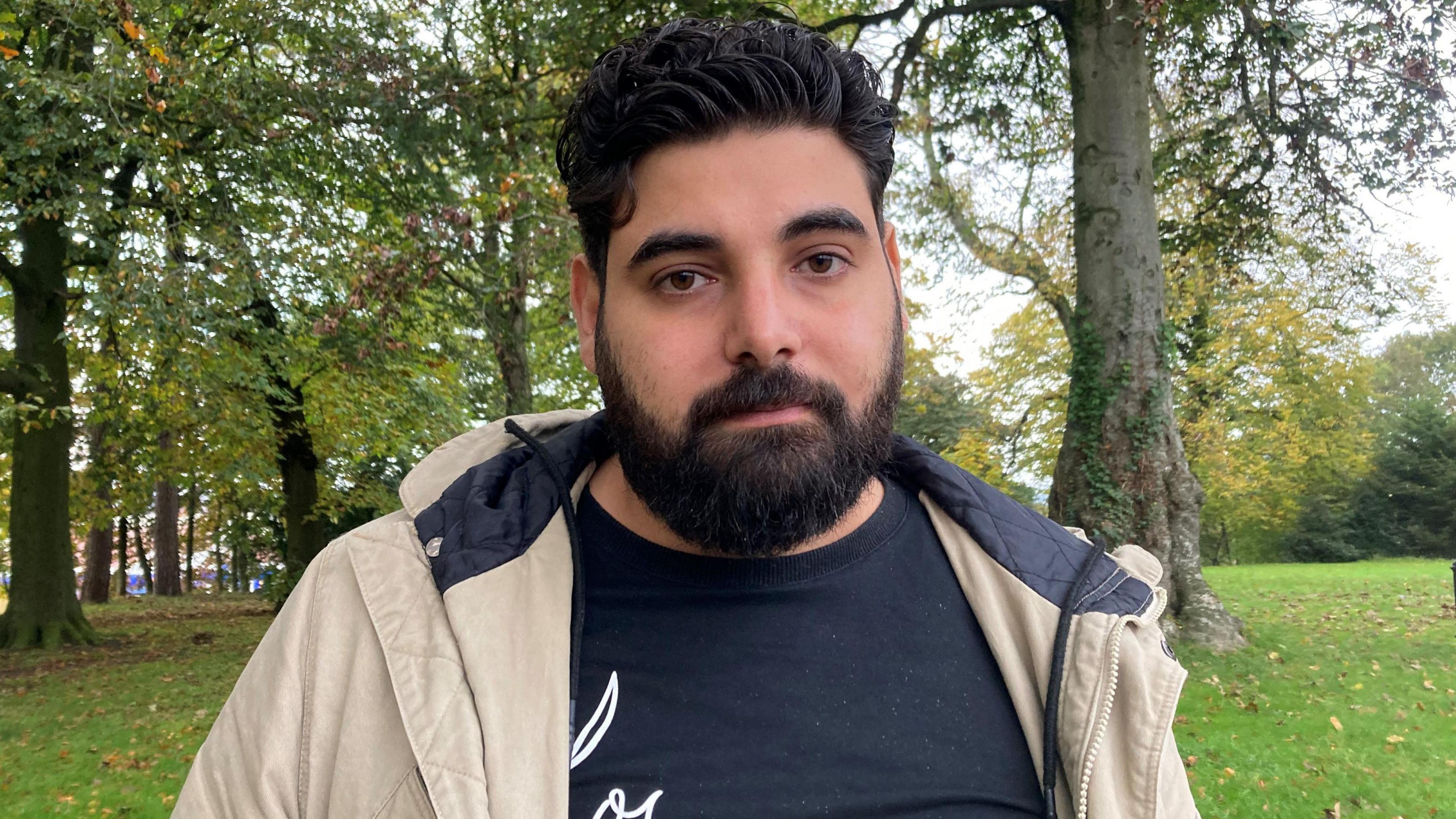
Khalid El-Estal's wife and other family members were killed in Gaza during Israel's military response to the 7 October Hamas attacks
Khalid El-Estal was born in Belfast and attended primary school in the city. His family relocated to Gaza when he was aged eight.
His wife and other family members were killed in Gaza last year.
Mr El-Estal, who now lives in Dublin with his children, told BBC News NI the decision to recognise a Palestinian state was a "great step".
"It translates the solidarity shown by the Irish government," he said.
"It means a lot.
"It will encourage more countries and put pressure on Israel to stop the war."
The impact of recognising a Palestinian state
- Published28 May 2024
Ireland, Norway and Spain to recognise Palestinian state
- Published22 May 2024
Netanyahu vows to continue war amid air strike condemnation
- Published28 May 2024
Zaid Al-Barghouthi, who is a vice-president for campaigns in the Union for Students in Ireland, said he had mixed feelings about the move.
His parents are Palestinian and he grew up in Jordan, moving to the Republic of Ireland to study.
"I have two reactions to this. First is my personal reaction: for the most part it is a positive reaction - there is a realisation that we are part of the solution to the war. But it does feel out of place for now," he said.
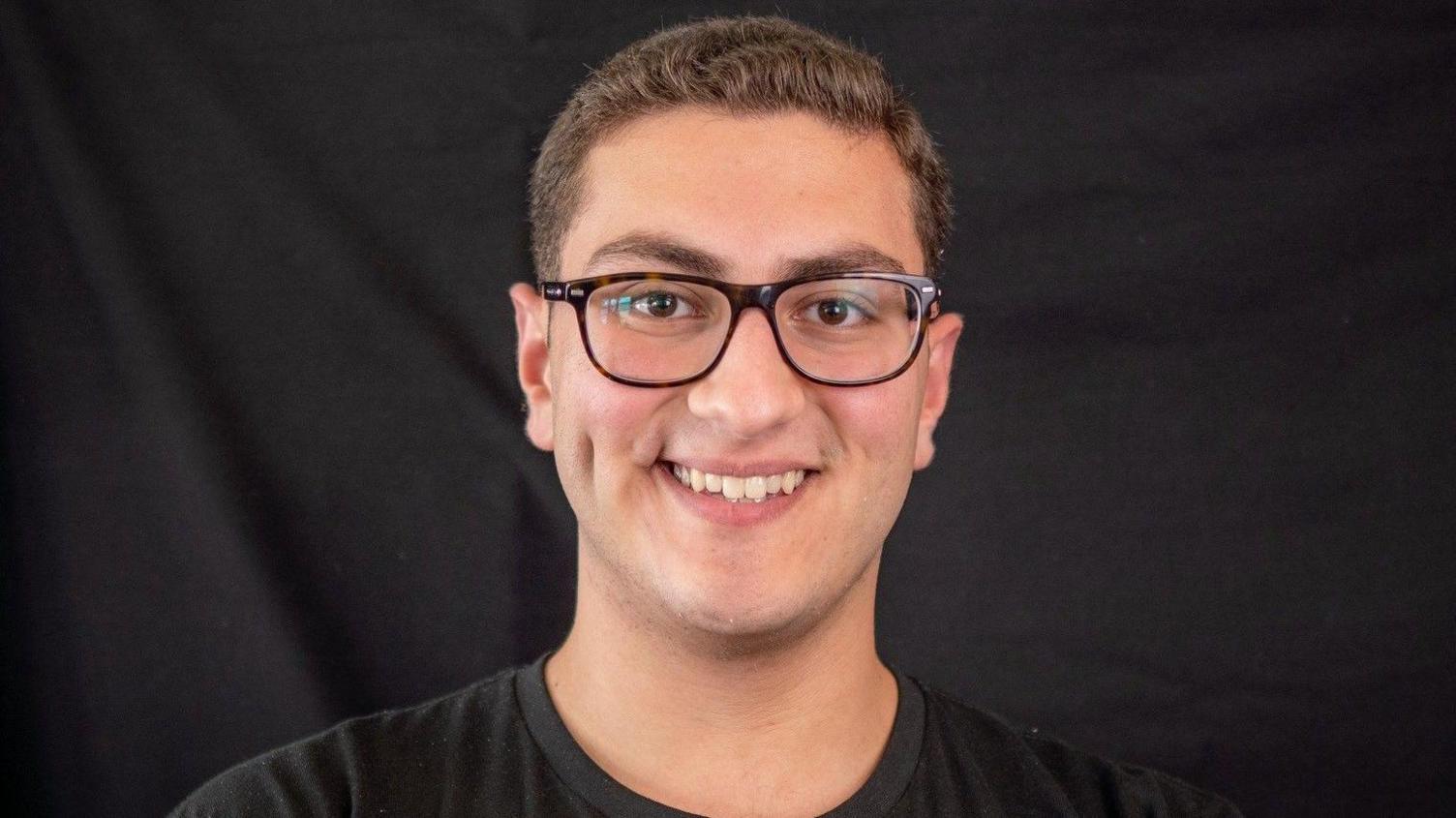
Zaid Al-Barghouthi's parents are Palestinian
"It is a token gesture. It does not help the people who are suffering.
"Then there is my professional reaction. The Irish government has recognised a Palestinian state but Palestinian students are being told they cannot remain here when they finish their studies.
"Where do they go?"
What do critics of the Irish government's move say?
The Ireland Israel Alliance is a non-profit organisation based in Dublin, which says it aims to "bring clarity to public perception of issues surrounding the Israeli-Palestinian conflict" and "ensure such issues receive fair and impartial treatment within the Irish media".
"Today is a very sad day for Ireland-Israel relations and indeed for the nation of Ireland, as almost eight months since the horrors of 7 October," it said in a statement.
"Our political leaders have decided the reward for Palestinian terrorism should be the recognition of a Palestinian state.
"The Ireland Israel Alliance opposes the recognition of a Palestinian state as do so many others here in Ireland, including the vast majority of Ireland's beleaguered Jewish community."
The organisation added that it was concerned about anti-semitism in Ireland.
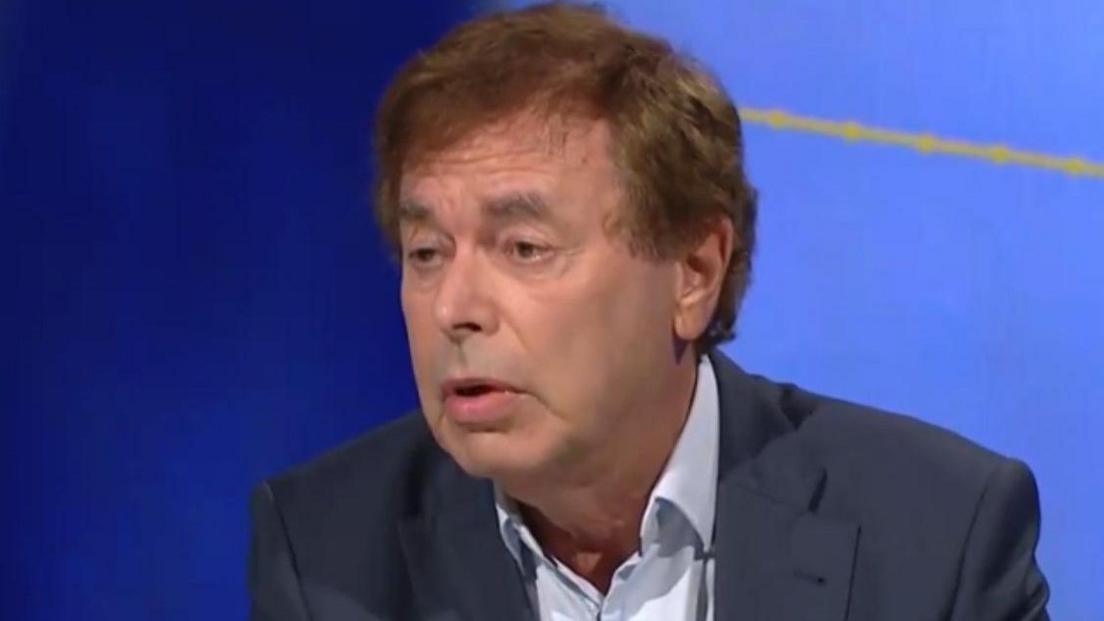
Alan Shatter believes this announcement is political theatre
Former Irish justice minister Alan Shatter, who is Jewish, said there had been a "continuing escalation of anti-semitism" in Ireland since 7 October, when Hamas attacked Israel and killed about 1,200 people.
He criticised the move to recognise a Palestinian state.
"This announcement sends the wrong message - if you commit atrocities, you will get some reward," he told BBC News NI.
"It is a bizarre situation. It is political theatre and offers no assistance to ending the conflict.
"I have for many years advocated for a two-state solution of Palestinians and Israelis living side by side."
What has Israel said?
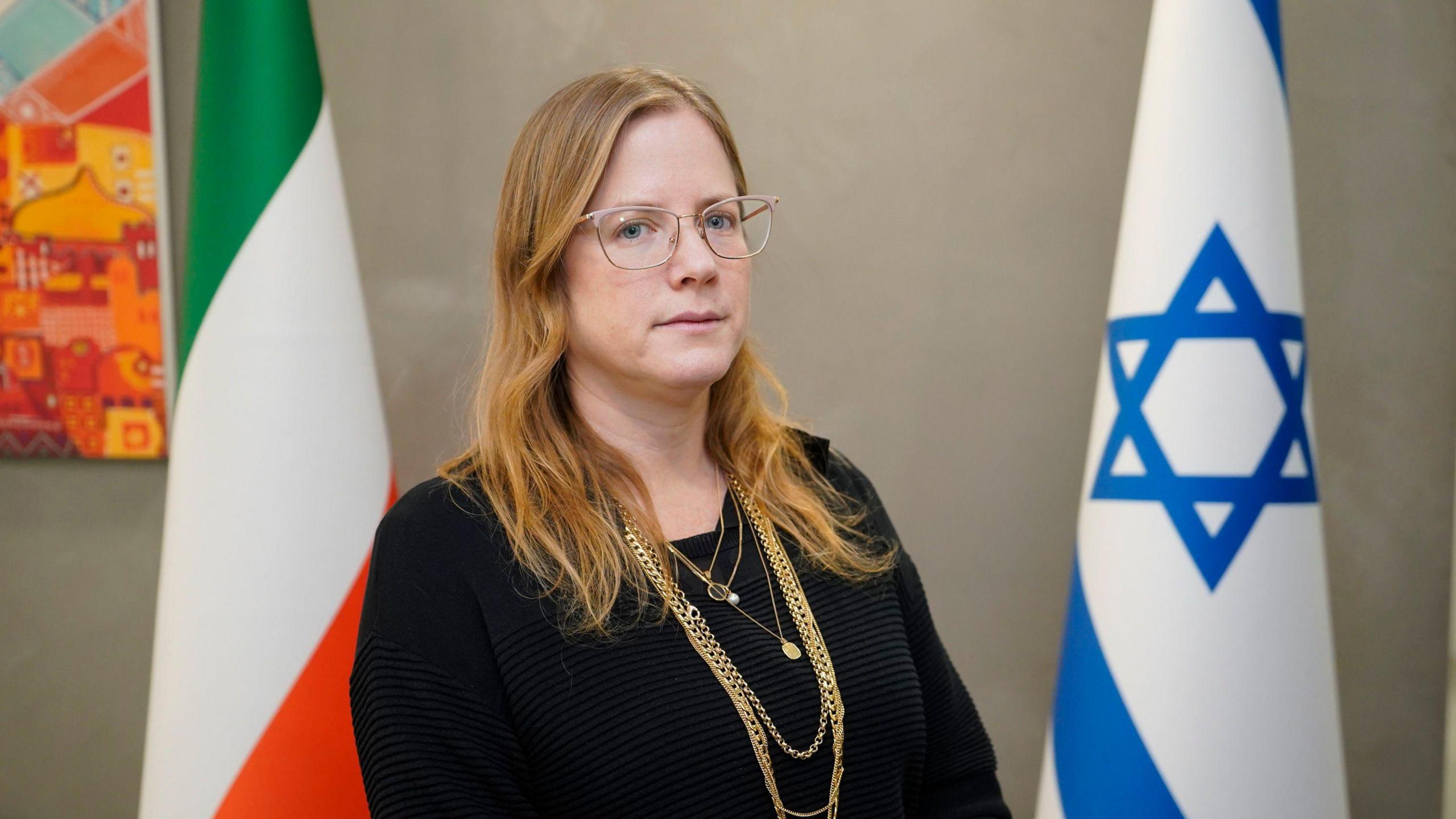
Israel's Ambassador to Ireland Dana Erlich at the Israeli Embassy in Dublin
In a statement, the Embassy of Israel in Dublin said it was disappointed by Ireland's recognition of a Palestinian state.
It said it followed "worrying initiatives and statements in recent months".
"This decision brings more questions than answers, especially regarding its timing, after Hamas committed the worst atrocity against Jewish people since the Holocaust," the statement added.
It said the move suggested to Hamas that "terrorism pays" and that it would jeopardise the potential release of Israeli hostages in Gaza.
"Unilateral gestures such as this will do nothing for either Palestinians or Israelis. We can only resolve our differences through bilateral negotiation," the statement added.
"Just as in Ireland's case, political steps cannot be imposed."
What has the Palestinian representative in Ireland said?
The Ambassador of Palestine in Ireland Jilan Wahba Abdalmajid issued a statement thanking the Irish government.
"Ireland’s declaration of recognition of our right to statehood is an important statement to the international community," she said.
"The bonds between Ireland and Palestine are exceptionally strong".
She added that it gave Palestinians "hope and possibility".
Diplomatic fallout
The Irish Ambassador to Israel Sonya McGuinness was summoned to the Israeli Foreign Affairs Ministry in Jerusalem and reprimanded.
The ambassadors of Spain and Norway attended the same meeting for the same reason.
However, it is understood a Palestinian embassy - considered an upgrade from the existing mission - is to open in Dublin in the coming week, while Dublin will send an ambassador to represent Ireland to the Palestinian people.
- Published28 May 2024
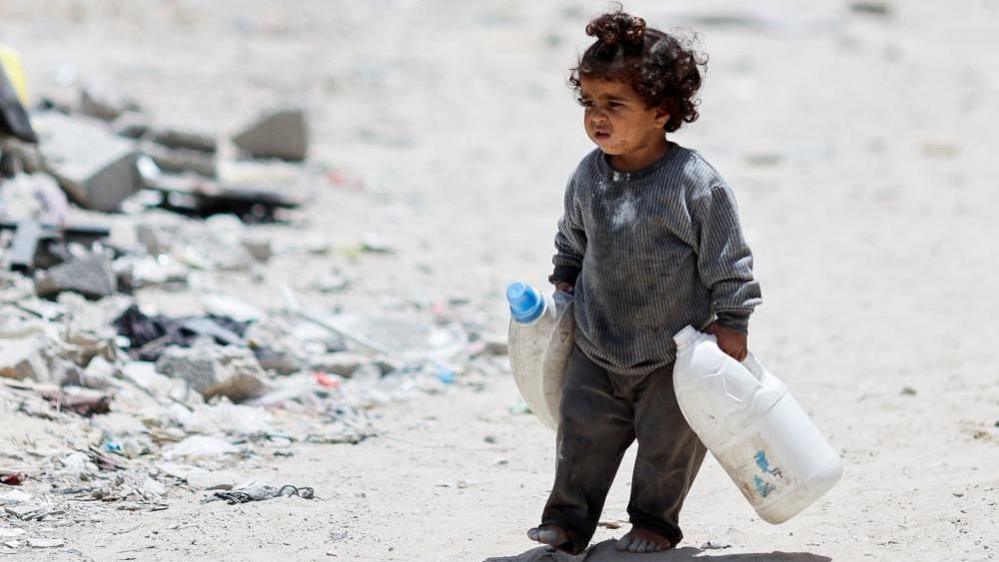
- Published22 May 2024
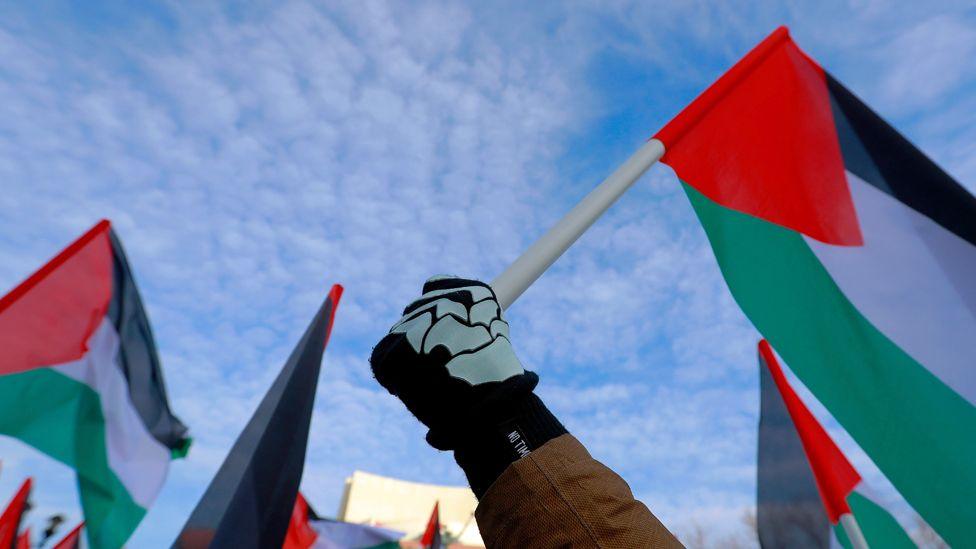
- Published28 May 2024
